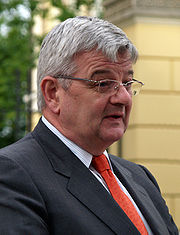Joschka Fischer's Human Design Chart
2/4 Emotional ProjectorJoschka Fischer: A Dynamic Journey in Politics and Human Design
Joschka Fischer, born on April 12, 1948, in Gerabronn, Germany, is a renowned German politician affiliated with the Alliance ’90/The Greens. He notably served as the Foreign Minister and Vice Chancellor of Germany in the cabinet of Gerhard Schröder from 1998 to 2005. Fischer’s influence in German politics, especially within the Green Party, has been monumental since the 1970s. His popularity soared during his tenure, making him one of the most admired political figures in Germany during that period.
Early Life and Political Awakening
Fischer’s political journey began in the turbulent landscape of post-war Germany. Born to a family of Hungarian-German descent, he was raised in a politically and socially vibrant environment. His early interest in politics was shaped by the socio-political changes sweeping across Europe. As a young man, Fischer was deeply involved in the student movement of the 1960s, a time characterized by protest and calls for reform.
Rise in the Green Party
In the 1970s, Fischer emerged as a central figure in the West German Greens, a party that emphasized environmental issues, social justice, and grassroots democracy. His unique ability to communicate and connect with the public propelled him to leadership positions within the party. Under his guidance, the Greens transitioned from a fringe movement to a significant political force in Germany.
Tenure as Foreign Minister and Vice Chancellor
Fischer’s appointment as Foreign Minister and Vice Chancellor in 1998 marked a pivotal moment in his career. During his tenure, he played a crucial role in shaping Germany’s foreign policy, advocating for peace and sustainability on the international stage. Fischer was instrumental in Germany’s response to the Kosovo War and its stance on European integration. His diplomatic skills and vision for a united Europe resonated globally, enhancing Germany’s role as a key player in international relations.
Human Design Insights
Understanding Joschka Fischer’s impact involves not only his political achievements but also his Human Design. Fischer is a Projector, a type known for its guidance and leadership capabilities. Projectors are here to lead by example, and Fischer’s role in German politics exemplifies this. His strategy of ‘Waiting for the Invitation’ aligns with the patience and wisdom he exhibited throughout his political career, waiting for the right moments to contribute his insights and influence.
Emotional Authority
Fischer’s Emotional Authority reflects his decision-making process, which involves allowing his emotions to guide him over time. This aspect of his Human Design indicates his capacity to deeply feel and reflect before making significant decisions. His political actions often demonstrated a balance between emotion and rational thought, contributing to his effectiveness as a leader.
Profile: 2/4
Fischer’s 2/4 Profile in Human Design highlights his natural ability to connect with others and build networks. The ‘2’ signifies the Hermit, someone who excels in their comfort zone and often discovers their talents intuitively. The ‘4’ stands for the Opportunist, reflecting his aptitude for forming strong interpersonal connections. These traits were evident in Fischer’s ability to forge alliances and navigate complex political landscapes.
Incarnation Cross: Right Angle Cross of Maya
The Right Angle Cross of Maya signifies Fischer’s life theme of bringing clarity and understanding to complex systems, which aligns with his political career. His influence in demystifying complex international policies and advocating for transparency aligns with this aspect of his Human Design.
Channels: 17-62, 43-23, 16-48, 37-40
- Channel 17-62: This channel speaks to Fischer’s logical and organizational skills, crucial for his strategic planning in politics.
- Channel 43-23: Known as the Genius to Freak channel, it highlights Fischer’s innovative ideas that sometimes challenged the status quo.
- Channel 16-48: This channel of talent signifies his ability to master skills and present them effectively, seen in his political speeches and strategies.
- Channel 37-40: Known for its focus on community and familial bonds, this channel underscores Fischer’s commitment to social justice and human rights.
Post-Political Career
After leaving office on November 22, 2005, following the defeat of the Schröder government in the September 2005 election, Fischer transitioned to academia and consultancy. He has lectured at several prestigious institutions, sharing his insights on international relations and sustainable development. His post-political career has been marked by a continued commitment to global issues, aligning with his Human Design as a Projector who continues to guide and inspire.
Legacy and Influence
Joschka Fischer’s legacy in German and global politics remains significant. His visionary approach and commitment to sustainability and peace have left an indelible mark. Understanding his Human Design enhances our appreciation of his intuitive and strategic contributions to society. As a Projector with Emotional Authority and a 2/4 Profile, Fischer’s life and career illustrate the harmonious blend of logic, emotion, and social connectivity.
Frequently Asked Questions
Who is Joschka Fischer?
Joschka Fischer is a German politician known for his role as Foreign Minister and Vice Chancellor of Germany from 1998 to 2005. He is associated with the Alliance ’90/The Greens party and has been a significant figure in German politics since the 1970s.
What is Joschka Fischer’s Human Design?
Joschka Fischer is a Projector in Human Design, with Emotional Authority, a 2/4 Profile, and the Right Angle Cross of Maya as his Incarnation Cross. His Human Design channels include 17-62, 43-23, 16-48, and 37-40.
What contributions did Joschka Fischer make to German politics?
As Foreign Minister and Vice Chancellor, Fischer played a key role in shaping Germany’s foreign policy, focusing on peace, sustainability, and European integration. He has been a leading figure in the Green Party, advocating for environmental and social justice issues.
How does Human Design influence Joschka Fischer’s career
Discover More Famous People
Browse and analyze over 55,000 public figures and celebrities.
Ra Uru Hu
5/1 Manifestor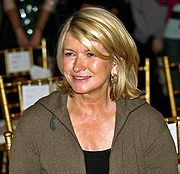
Martha Stewart
4/6 Manifestor
David Lynch
4/6 Generator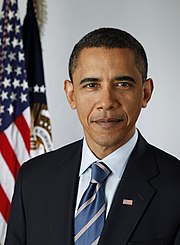
Barack Obama
6/2 Projector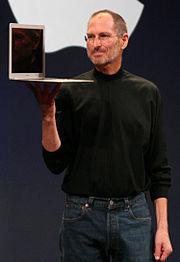
Steve Jobs
6/3 Generator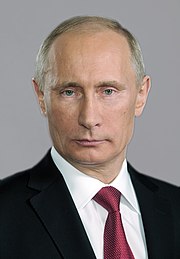
Vladimir Putin
5/1 Manifestor
Kim Kardashian
3/5 Generator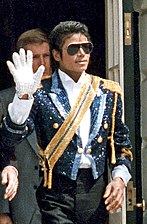
Michael Jackson
1/3 Projector
Marilyn Monroe
6/2 Projector
Ariana Grande
2/4 Projector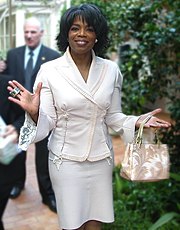
Oprah Winfrey
2/4 Generator
Johnny Depp
2/4 ManifestorWhat is HumanDesign.ai and how does it work?
Curious what makes Joschka Fischer tick? HumanDesign.ai instantly maps their exact birth data into a fully interactive clickable bodygraph chart, letting you hover or tap every center, channel, and gate for plain-language explanations. Bella, the platform’s built-in AI guide, adds context in real time, translating complex mechanics into everyday insights so you can see how Joschka Fischer’s strengths, challenges, and life themes play out on-screen.
The same tools are waiting for you. Generate your own Human Design Chart in seconds, open a library of 2000+ suggested questions, and chat with Bella as often as you like to decode your design, daily transits, and even relationship dynamics.
Want to compare energies? Save unlimited charts for friends, family, or clients, then ask Bella to reveal compatibilities, composite patterns, or coaching tips, all in one conversation thread.
Start free with core features, or unlock our Personal and Pro plans for deeper dives: unlimited Q&A, celebrity chart search spanning 55,000+ public figures, white-label PDF reports, branded content generation, and a professional profile with built-in booking for practitioners. Whether you’re exploring your own potential or guiding others, HumanDesign.ai delivers an ever-expanding toolbox of AI-powered insights—no spreadsheets, no jargon, just clarity at your fingertips.
Ready to see yours? Signup for FREE today!

